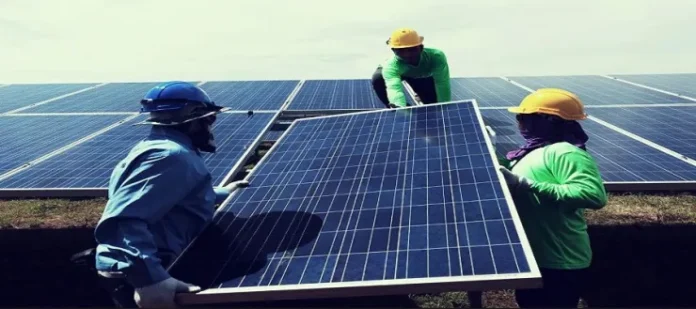Global consulting firm PricewaterhouseCoopers (PwC) has cautioned the Federal Government against an immediate restriction on solar panel imports, warning that such a policy could disrupt Nigeria’s fragile energy access gains and erode investor confidence in the renewable energy sector.
In its report titled “Rethinking Nigeria’s Proposed Solar Panel Import Policy,” PwC acknowledged the government’s ambition to localise solar production and promote industrialisation. However, it advised a phased and measured approach to avoid unintended setbacks.
The advisory came in response to a proposed policy by the Federal Ministry of Science and Technology to ban solar panel imports due to the proliferation of substandard products.
PwC stated that unless properly sequenced, the ban could derail Nigeria’s progress on clean energy. In Q4 2024, Nigeria imported solar panels valued at N237.3 billion. That figure dropped by nearly 89% to N125.29 billion in Q1 2025.
“In 2023 alone, Nigeria imported over four million solar panels worth more than $200 million. This reflects not only the energy crisis but also the lack of sufficient local manufacturing capacity,” the report said.
PwC recommended a gradual, three- to five-year reduction in imports, allowing time for local manufacturers to scale capacity, meet domestic demand, and establish robust quality assurance systems.
“The proposed import restriction policy reflects Nigeria’s ambition for energy security and industrial growth. A measured and strategic approach is needed to avoid unintended disruptions,” PwC advised.
“A tiered strategy – including import quotas, progressive tariffs, or blended procurement models – would ensure continuity in supply while attracting long-term investments under a stable regulatory framework.”
The firm emphasized that Nigeria must balance its industrial policy with the need to maintain access to affordable solar energy.

